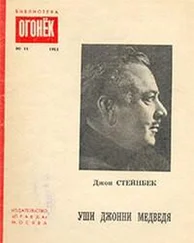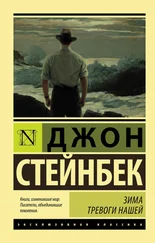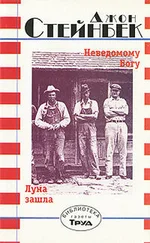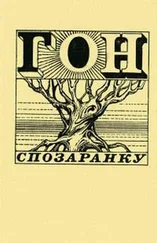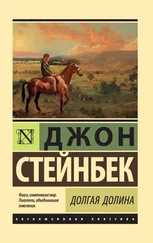Джон Стейнбек - Cup of Gold [Золотая чаша]
Здесь есть возможность читать онлайн «Джон Стейнбек - Cup of Gold [Золотая чаша]» — ознакомительный отрывок электронной книги совершенно бесплатно, а после прочтения отрывка купить полную версию. В некоторых случаях можно слушать аудио, скачать через торрент в формате fb2 и присутствует краткое содержание. Год выпуска: 1929, Жанр: Прочие приключения, на английском языке. Описание произведения, (предисловие) а так же отзывы посетителей доступны на портале библиотеки ЛибКат.
- Название:Cup of Gold [Золотая чаша]
- Автор:
- Жанр:
- Год:1929
- ISBN:нет данных
- Рейтинг книги:5 / 5. Голосов: 1
-
Избранное:Добавить в избранное
- Отзывы:
-
Ваша оценка:
- 100
- 1
- 2
- 3
- 4
- 5
Cup of Gold [Золотая чаша]: краткое содержание, описание и аннотация
Предлагаем к чтению аннотацию, описание, краткое содержание или предисловие (зависит от того, что написал сам автор книги «Cup of Gold [Золотая чаша]»). Если вы не нашли необходимую информацию о книге — напишите в комментариях, мы постараемся отыскать её.
Cup of Gold [Золотая чаша] — читать онлайн ознакомительный отрывок
Ниже представлен текст книги, разбитый по страницам. Система сохранения места последней прочитанной страницы, позволяет с удобством читать онлайн бесплатно книгу «Cup of Gold [Золотая чаша]», без необходимости каждый раз заново искать на чём Вы остановились. Поставьте закладку, и сможете в любой момент перейти на страницу, на которой закончили чтение.
Интервал:
Закладка:
They sat silently after her outburst, but at length she looked pleadingly into his eyes. "You aren't angry with me about the string, are you, Cousin Henry? I just have deep feelings like that. I can't help it."
"No, of course I am not angry." She was so little and so helpless, he thought.
"Where will you be going, now that you are rich and famous and covered with honors?"
"I don't know. I want to live in an atmosphere of sure things."
"Why, that's just the way I think," she exclaimed. "We must be somewhat alike. Things come to you if you do not go looking for them, I say. And nearly always I know what is going to happen to me, because I hope for it and then sit still. "
"Yes," said Henry.
"Papa's death was a great shock," she said, and again the tears were in her eyes. "It's a terrible thing to be left alone and nearly no-no relatives or friends. Of course, the Moddyfords have been lovely to me, but they couldn't be like my own people. Oh, dear! I have been so lonely. I was glad when you came, Cousin Henry, if only because we are of one blood." Her eyes were glistening with tears, and her underlip trembled violently.
"But you must not cry, " Henry said soothingly. "You will not need to worry any more, Elizabeth. I am here to take your trouble from your shoulders. I will help you and care for you, Elizabeth. I wonder how you bore the grief that fell on you. You have been brave to hold your head so high when misery was tugging at your spirit."
"I had my music," she said. "I could retire into my music when the grief was too bitter."
"But now, Elizabeth, you need not even do that. You will come with me to England when I go, and you will be comfortable and safe with me for always."
She had sprung away from him.
"But what are you suggesting? What is this thing you are proposing to me?" she cried. "Isn't it some sin-some crime-for cousins to marry?"
"Marry?"
"Oh!" She blushed, and her eyes glittered again with her quick tears. "Oh! I am ashamed. You did mean marry, didn't you? I am ashamed." Her agitation was pitiful.
"After all, why not?" thought Henry. "She is pretty; I am sure of her family; and besides, she is rather a symbol of this security I have been preaching. I could be sure of never doing anything very radical if she were my wife. I really think I do want security. And besides," his thought finished, "I really cannot let her suffer so."
"Oh, surely I meant marry. What else could you have thought I meant? I am only clumsy and crude about it. I have startled you and hurt you. But, dear Elizabeth, there is no crime or sin about it. Many cousins marry. And we know all about each other, and our family is one. You must marry me, Elizabeth.
Truly I love you, Elizabeth."
"Oh!" she stammered. "O-oh! I cannot think of it. I mean, I am-ill; I mean-my head whirls. You act so suddenly, Henry-so unexpectedly. Oh, please let me go. I must talk about it to Lady Moddyford.
She will know what to say."
King Charles the Second and John Evelyn were sitting in a tiny library. A bright fire crackled on the hearth, throwing its flickerings on the books which lined the walls. On a table beside the two men were bottles and glasses.
"I knighted him this afternoon," the King was saying. "He got pardon and a knighthood for two thousand pounds."
"Well, two thousand pounds-" murmured John Evelyn. "Certain tradesmen will, perhaps, bless his knighthood."
"But that's not it, John. I could have got twenty. He took about a million out of Panama."
"Ah, well; two thousand pounds-"
"I ordered him to come in here tonight," said the King. "These sailors and pirates sometimes have a tale or two worth repeating. You'll be disappointed in him. He is-lumpish, I think is the word. You get the impression that a great mass is planted before you; and he moves as though he pushed this own invisible cage ahead of him."
"You might create a title," John Evelyn suggested. "It seems wasteful to let a million get away without even trying."
Sir Henry Morgan was announced.
"Step in, sir. Step in!" The King saw that he had a glass of wine in his hands. Henry seemed frightened.
He gulped the wine.
"Good job of yours in Panama," the King observed. "It was better to burn it now than later, and I have no doubt we should have had to do it later."
"I thought of that when I set the torch, Sire. These hoggish Spaniards want to overrun the world."
"You know, Captain, piracy-or, to be delicate, free-booting-has been a good thing for us, and a bad thing for Spain. But the institution grows to be a nuisance. I spend half of my time making excuses to the Spanish Ambassador.
I am going to commission you Lieutenant-Governor of Jamaica."
"Sire! "
"No thanks! I am acting on the advice of an adage. Piracy must be stopped now. These men have played at little wars long enough. "
"But, Sire, I myself was a buccaneer. Do you want me to hang my own men? "
"That is what I inferred, sir. Who can track them down better than you who know all their haunts? "
"They fought with me, Sire. "
"Ah; conscience? I had heard that you were able to do about as you pleased with your conscience. "
"Not conscience, Sire, but pity. "
"Pity is misplaced in a public servant or a robber. A man may do what it is profitable to do. You yourself have demonstrated two of these premises. Let us see you labor with the third," the King said acidly.
"I wonder if I can. "
"If you wonder, then you can," John Evelyn put in.
The King's manner changed.
"Come! drink!" he said. "We must have life, and perhaps later, song. Tell us a tale, Captain, and drink while you tell it. Wine adds capitals and asterisks to a good tale-a true story. "
"A tale, Sire?"
"Surely. Some story of the colonial wenches; some little interlude in piracy-for I am sure you did not steal only gold." He motioned a servant to keep Henry's glass filled. "I have heard of a certain woman in Panama. Tell us about her."
Henry drained his glass. His face was becoming flushed. "There is a tale about her," he said. "She was pretty, but also she was an heiress. I confess, I favored her. She would inherit silver mines. Her husband offered one hundred thousand pieces of eight for her. He wanted to get his hands on the mines. Here was the question, Sire, and I wonder how many men have been confronted with one like it? Should I get the woman or the hundred thousand?"
The King leaned forward in his chair. "Which did you take? Tell me quickly."
"I remained in Panama for a while," said Henry. "What would Your Majesty have done in my place? I got both. Perhaps I got even more than that. Who knows but my son will inherit the silver mines eventually."
"I would have done that," cried the King. "You are right. I would have done just that. It was clever, sir.
A toast, Captain-to foresight. Your generalship, sir, runs to other matters than warfare, I see. You have never been defeated in battle, they say; but tell me, Captain, were you ever defeated in love? It is a good scene-an unusual scene-when a man admits himself bested in love. The admission is so utterly contrary to every masculine instinct. Another glass, sir, and tell us about your defeat."
"Not by a woman, Sire-But once I was defeated by Death. There are things which so sear the soul that the pain of it follows through life. You asked for the story. Your health, Sire.
"I was born in Wales, among the mountains. My father was a gentleman. One summer, while I was a lad, a little princess of France came to our mountains for the air. She had a small retinue, and being lively and restless and clever, she achieved some freedom. One morning I came upon her where she bathed alone in the river. She was naked and unashamed. In an hour-such is the passionate blood of her race-she was lying in my arms. Sire, in all my wanderings, in the lovely women I have seen and the towns I have taken, there has been no pleasure like the days of that joyous summer. When she could escape, we played together in the hills like little gods. But this was not enough. We wanted to be married. She would give up her rank and we would go to live somewhere in America.
Читать дальшеИнтервал:
Закладка:
Похожие книги на «Cup of Gold [Золотая чаша]»
Представляем Вашему вниманию похожие книги на «Cup of Gold [Золотая чаша]» списком для выбора. Мы отобрали схожую по названию и смыслу литературу в надежде предоставить читателям больше вариантов отыскать новые, интересные, ещё непрочитанные произведения.
Обсуждение, отзывы о книге «Cup of Gold [Золотая чаша]» и просто собственные мнения читателей. Оставьте ваши комментарии, напишите, что Вы думаете о произведении, его смысле или главных героях. Укажите что конкретно понравилось, а что нет, и почему Вы так считаете.
![Джон Стейнбек Cup of Gold [Золотая чаша] обложка книги](/books/181372/dzhon-stejnbek-cup-of-gold-zolotaya-chasha-cover.webp)
